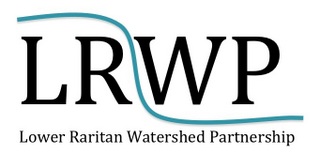Slow down on the salt!
Even after today’s snow has melted and flowed from our streets, through our stormwater system, and out to Raritan Bay, our local streams and the Raritan River will carry the scars of our desire to drive quickly in wintry conditions.
Too often we forget that the salt we apply to our streets, parking lots, driveways and sidewalks is a pollutant that permanently stays in our water bodies and groundwater.
As we imagine warm summer days playing in the surf on the Jersey shore, basking in the sun and tasting salt spray, let’s remember that the salts we put on roadway surfaces ends up in our waterways. These salts increase the mobilization of heavy metals and other pollutants in roadside soils, causing erosion and aiding transport of pollutants into our waterways.
It is the case that in urbanized areas like the Lower Raritan Watershed, the first flush of meltwater is two-to-three times as salty as ocean water. We can float in the ocean because salty water is more dense than freshwater, and sinks to the bottom. Salts likewise sink to the sediments in our freshwater bodies, where they decrease oxygen levels, essentially strangling the animals that live in the benthic (bottom) layer.
These bottom-dwelling animals (benthic macroinvertebrates) are some of the most sensitive species in our ecosystem. They form the base of the food chain, and when they die off, the creatures higher up on the food chain, including fish, can’t find food.
Salt is toxic, but necessary for public safety. We are all part of the problem with over applying it, and all part of the solution, too. The top five things you can do now:
- In winter, drive for the season. Our collective demand for perfectly-cleared roads is a major barrier to protecting our waterways
- Ask your municipal and county leaders what they are doing to minimize salt usage on public roads.
- Hire maintenance firms that have taken salt application training.
- Minimize your personal use by removing snow quickly and distributing only about one coffee mug of salt for a typical driveway.
- Be sure to clean up any leftover salt, sand, and de-icer to save and reuse as needed.
